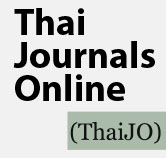
(ไม่มี)
CONCEPT OF TRUTH IN THE UPANISADS AND THE SUTTA-PITAKA
โดย คาซูฮิโระ ยามาโมโตะ / By Kazuhiro Yamamoto
Damrong Journal, Vol 9, No.1, 2010
บทคัดย่อ:
บทความนี้มีวัตถุประสงค์เพื่ออธิบายจุดเริ่มต้นของการแสวงหาความจริงในคัมภีร์อุปนิษัทและพระ สุตตันตปิฎก
ชาวอินเดียในสมัยโบราณโดยทั่วไปสนใจอย่างมากในการปฏิบัติทางศาสนาและการอบรมจิต ไม่ใช่การคิดตามหลักตรรกะ แม้กระนั้น ก็ไม่ได้หมายความว่าพวกเขาไม่สนใจในการค้นหาความจริงทางปรัชญา ความจริง (สันสกฤต สตฺย, บาลี สจฺจ) นี้คือสิ่งที่ไม่รู้จักตายสิ่งนี้คือพฺรหฺม บางครั้งก็เรียกว่า ความจริงของความจริง (สตฺยสฺย สตฺยํ) ในคัมภีร์อุปนิษัท และสิ่งนี้คือ ธมฺม ในพระสุตตันตปิฎกด้วย และในสมัยอินเดียโบราณ การค้นหาความจริงนิยมใช้เครื่องมือ คือ ความ รู้ (สันสกฤต ชฺญาน, บาลี ปญฺญา)
ในคัมภีร์อุปนิษัทที่เก่าแก่และพระพุทธศาสนาในยุคแรกเริ่มทั้งสองระบุว่าความรู้ หรือความรู้แจ้งเป็นจุดเริ่มต้นของกาค้นหาความจริง ยิ่งกว่านั้น ความรู้แจ้งนี้หมายถึง “transcendental knowledge” หรือ “universal knowledge” กล่าวคือความรู้แจ้งนี้เป็นสิ่งที่ทำให้เข้าใจโลกที่ไม่ยั่งยืนทั้งหมด หรือทำให้โลกที่ไม่ยั่งยืนทั้งหมดปรากฏออกมา ในบทความนี้พบว่าเรื่องความรู้ ซึ่งเป็นจุดเริ่มต้นของการแสวงหาความจริงนั้น พระพุทธศาสนาในยุคแรกเริ่มถือตามหลักการของคัมภีร์อุปนิษัทที่เก่าแก่อย่างแท้จริง
ABSTRACT:
This paper’s purpose is to clarify the starting point of the pursuit of the truth in the Upanisฺads and the Sutta-pitฺaka.
Generally in ancient India, the people’s main concern lies in a religious practice and a spiritual cultivation, not in a theoretical speculation. However, it does not necessarily mean that they have no interest in the philosophical quest for the truth. This “truth” (Skt. satya, PĀli sacca) is the Immortal. It is Brahma, which is also called “the truth of truth” (satyasya satyaṃ), in the Upanisฺads Or it is the Dhamma in the Sutta-pitฺaka. To understand this pursuit of the truth in ancient India, there is a clue. It is “knowledge” (SKT.JÑĀNA, PĀLI PAÑÑĀ).
In both the old Upanisฺads and early Buddhism, this knowledge, or this intuitive knowledge, is the starting point of the pursuit of the truth. Moreover, in both of them, this intuitive knowledge is regarded as “transcendental knowledge” or “universal knowledge.” In other words, this knowledge is that through which this whole ephemeral world is to be understood, or that through which the whole existence of this ephemeral world is established. This paper concludes that, in regard to this knowledge as the starting point of the pursuit of the truth, early Buddhism is an authentic follower of the old Upanisฺads











